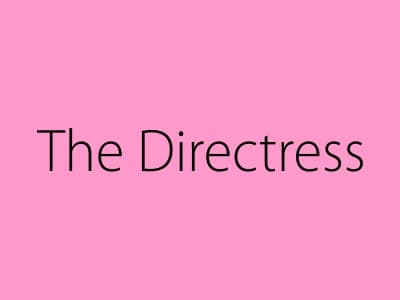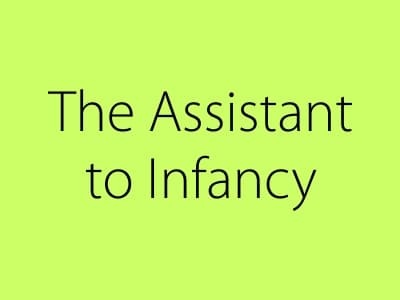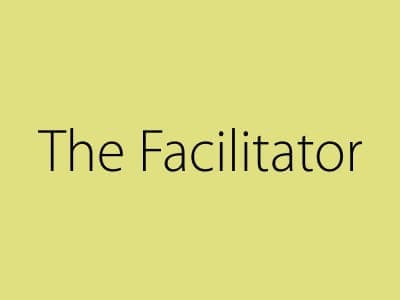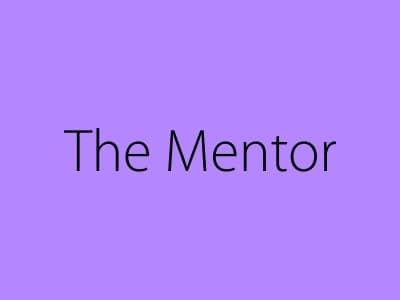Course Info:
This Montessori Secondary Diploma program also is the study of Montessori pedagogy and child development that explores interdisciplinary study of human beings, their endeavours and relationship with respect to the society, in children between 12 and 18 years.
Course Ratings:
-
Course Excellence
%
-
Ease of Learning
%
-
Adaptability
%
-
Employed
%
Course Metrics:
Course Overview
How the Course is StructuredTheory Sessions|Practicum Classes|Year Long Project|Internship
| Theory Sessions: 400 hours of lectures, discussions, and interactive sessions covering advanced adolescent development, Montessori philosophy, and practical training. |
|---|
| Overview | Topics |
|---|---|
| Foundations of Human Development |
|
| Prepared Environment & Community |
|
| Social, Economic & Educational Dynamics |
|
| Core Pedagogical Techniques |
|
| Collaborative Relationships |
|
| Program Core Knowledge |
|
| Practicum Sessions: 700 hours | Follow-up Sessions: 200 hours Max. |
|---|
| Practicum hours do not include independent research, material making, album preparation and/or examinations. |
| Yearlong Project |
|---|
| Up to 16 academic contact hours dedicated to an integrated project emphasizing research, reflective practice, and innovative curriculum design. |
| Internship | In-school Training |
|---|
| 500 hours of real-world teaching practice in accredited Montessori adolescent programs. |
Course Curriculum
What the Course offers to YouDr. Montessori's Theory of Human Development |Characteristics and Needs of the Third Plane of Development |Transition from and Building on the First Two Planes of Development |A Centre for Study & Work – The Prepared Environment for the Third Plane |Preparation and Role of the Adults |Social and Economic Independence – Production & Exchange |Work as a Human Right and Privilege |Dr. Montessori's Educational Syllabus & Plans of Study and Work |Three Period Learning Cycle |Contribution of the Third Plane – To What End? |Introduction to the Technique of Seminar |Introduction to the Method of Observation |Working with Adolescents, Colleagues, Administrators, and Parents |Additional Modules – Leadership, Vocational Training & Community Integration |Adolescent Self-Discovery and Identity Formation |Advanced Observation and Documentation Techniques |Curriculum and Material Design for Adolescence |Integration of Technology and Global Awareness |Crisis Management, Conflict Resolution, and Emotional Regulation |Guidance, Counseling, and Mentorship Practices |Career Orientation and Vocational Pathways |Leadership, Collaborative Decision-Making, and Civic Responsibility
Module 1 of 22 : Dr. Montessori's Theory of Human Development
| Course Categaory: | Foundations of Human Development |
| Minimum Course Topics: |
|
| Hours: | 30–50+ hours |
| Course Description: | Provides an in-depth exploration of Dr. Montessori’s theory of human development and its implications for educating adolescents. |
| Course Work Examples: |
|
| Competencies Assessment: |
|
| Course Knowledge Categories: | Human Development Theory, Montessori Philosophy |
| Course Outcomes: |
|
Module 2 of 22 : Characteristics and Needs of the Third Plane of Development
| Course Categaory: | Adolescent Development |
| Minimum Course Topics: |
|
| Hours: | 30–45+ hours |
| Course Description: | Examines the unique characteristics and developmental needs of adolescents in the third plane. |
| Course Work Examples: |
|
| Competencies Assessment: |
|
| Course Knowledge Categories: | Adolescent Psychology, Developmental Needs |
| Course Outcomes: |
|
Module 3 of 22 : Transition from and Building on the First Two Planes of Development
| Course Categaory: | Developmental Continuity |
| Minimum Course Topics: |
|
| Hours: | 25–40+ hours |
| Course Description: | Focuses on the transition from early childhood to adolescence and integrating previous developmental experiences. |
| Course Work Examples: |
|
| Competencies Assessment: |
|
| Course Knowledge Categories: | Developmental Continuity, Integration Strategies |
| Course Outcomes: |
|
Module 4 of 22 : A Centre for Study & Work – The Prepared Environment for the Third Plane
| Course Categaory: | Prepared Environment & Community Life |
| Minimum Course Topics: |
|
| Hours: | 35–60+ hours |
| Course Description: | Examines the construction and management of a centre as a prepared environment for adolescents, addressing both physical and social dimensions. |
| Course Work Examples: |
|
| Competencies Assessment: |
|
| Course Knowledge Categories: | Prepared Environment Design, Community Living |
| Course Outcomes: |
|
Module 5 of 22 : Preparation and Role of the Adults
| Course Categaory: | Adult Preparation & Support |
| Minimum Course Topics: |
|
| Hours: | 30–50+ hours |
| Course Description: | Prepares adults to meet the unique challenges of teaching adolescents, emphasizing mentoring, guidance, and supportive leadership. |
| Course Work Examples: |
|
| Competencies Assessment: |
|
| Course Knowledge Categories: | Adult Education, Mentoring Strategies, Professional Development |
| Course Outcomes: |
|
Module 6 of 22 : Social and Economic Independence – Production & Exchange
| Course Categaory: | Economic and Social Independence |
| Minimum Course Topics: |
|
| Hours: | 35–60+ hours |
| Course Description: | Discusses how production and exchange activities foster social and economic independence among adolescents, stressing the importance of work as both a right and a tool for self-reliance. |
| Course Work Examples: |
|
| Competencies Assessment: |
|
| Course Knowledge Categories: | Vocational Skills, Production & Exchange, Economic Independence |
| Course Outcomes: |
|
Module 7 of 22 : Work as a Human Right and Privilege
| Course Categaory: | Philosophy of Work |
| Minimum Course Topics: |
|
| Hours: | 25–40+ hours |
| Course Description: | Explores the philosophy that work is both a right and a privilege, emphasizing its role in personal development and social responsibility. |
| Course Work Examples: |
|
| Competencies Assessment: |
|
| Course Knowledge Categories: | Philosophy of Work, Ethics, Community Service |
| Course Outcomes: |
|
Module 8 of 22 : Dr. Montessori's Educational Syllabus & Plans of Study and Work
| Course Categaory: | Educational Syllabus & Curriculum Planning |
| Minimum Course Topics: |
|
| Hours: | 30–45+ hours |
| Course Description: | Delves into Montessori's educational syllabus and guides educators in designing plans of study and work tailored for the adolescent population. |
| Course Work Examples: |
|
| Competencies Assessment: |
|
| Course Knowledge Categories: | Montessori Syllabus, Curriculum Design, Educational Planning |
| Course Outcomes: |
|
Module 9 of 22 : Three Period Learning Cycle
| Course Categaory: | Pedagogical Techniques |
| Minimum Course Topics: |
|
| Hours: | 25–40+ hours |
| Course Description: | Covers the three period learning cycle—a cornerstone of Montessori pedagogy—adapted for adolescents to promote independent learning. |
| Course Work Examples: |
|
| Competencies Assessment: |
|
| Course Knowledge Categories: | Montessori Pedagogy, Learning Cycles, Instructional Methods |
| Course Outcomes: |
|
Module 10 of 22 : Contribution of the Third Plane – To What End?
| Course Categaory: | Philosophy & Educational Impact |
| Minimum Course Topics: |
|
| Hours: | 25–40+ hours |
| Course Description: | Explores the long-term contributions of the third plane, assessing its impact on personal growth and community development. |
| Course Work Examples: |
|
| Competencies Assessment: |
|
| Course Knowledge Categories: | Educational Philosophy, Social Impact |
| Course Outcomes: |
|
Module 11 of 22 : Introduction to the Technique of Seminar
| Course Categaory: | Collaborative Learning Techniques |
| Minimum Course Topics: |
|
| Hours: | 20–35+ hours |
| Course Description: | Introduces the seminar method as a pedagogical tool for facilitating interactive group discussions among adolescents. |
| Course Work Examples: |
|
| Competencies Assessment: |
|
| Course Knowledge Categories: | Seminar Techniques, Group Facilitation |
| Course Outcomes: |
|
Module 12 of 22 : Introduction to the Method of Observation
| Course Categaory: | Observation & Assessment |
| Minimum Course Topics: |
|
| Hours: | 20–35+ hours |
| Course Description: | Introduces comprehensive observation techniques essential for understanding adolescent behavior and learning patterns. |
| Course Work Examples: |
|
| Competencies Assessment: |
|
| Course Knowledge Categories: | Observational Techniques, Assessment Methods |
| Course Outcomes: |
|
Module 13 of 22 : Working with Adolescents, Colleagues, Administrators, and Parents
| Course Categaory: | Collaborative Relationships & Communication |
| Minimum Course Topics: |
|
| Hours: | 30–45+ hours |
| Course Description: | Focuses on establishing effective relationships and communication channels among adolescents, school staff, and parents. |
| Course Work Examples: |
|
| Competencies Assessment: |
|
| Course Knowledge Categories: | Interpersonal Communication, Collaborative Leadership |
| Course Outcomes: |
|
Module 14 of 22 : Additional Modules – Leadership, Vocational Training & Community Integration
| Course Categaory: | Leadership & Vocational Integration |
| Minimum Course Topics: |
|
| Hours: | 30–50+ hours |
| Course Description: | Rounds out the curriculum by addressing leadership, vocational skill-building, and community integration for adolescents. |
| Course Work Examples: |
|
| Competencies Assessment: |
|
| Course Knowledge Categories: | Leadership, Vocational Training, Community Integration, Global Citizenship |
| Course Outcomes: |
|
Module 15 of 22 : Adolescent Self-Discovery and Identity Formation
| Course Categaory: | Personal Development |
| Minimum Course Topics: |
|
| Hours: | 20–30+ hours |
| Course Description: | Focuses on the process of self-discovery and personal identity formation among adolescents, empowering them to define their own paths. |
| Course Work Examples: |
|
| Competencies Assessment: |
|
| Course Knowledge Categories: | Self-Identity, Adolescent Psychology |
| Course Outcomes: |
|
Module 16 of 22 : Advanced Observation and Documentation Techniques
| Course Categaory: | Observation & Assessment |
| Minimum Course Topics: |
|
| Hours: | 20–30+ hours |
| Course Description: | Expands on basic observation methods to include detailed and systematic documentation of adolescent learning behaviors. |
| Course Work Examples: |
|
| Competencies Assessment: |
|
| Course Knowledge Categories: | Advanced Observation Techniques, Digital Recordkeeping |
| Course Outcomes: |
|
Module 17 of 22 : Curriculum and Material Design for Adolescence
| Course Categaory: | Curriculum Design |
| Minimum Course Topics: |
|
| Hours: | 25–40+ hours |
| Course Description: | Provides practical guidance on designing curricula and materials that address the unique needs of adolescents while remaining true to Montessori principles. |
| Course Work Examples: |
|
| Competencies Assessment: |
|
| Course Knowledge Categories: | Curriculum Design, Material Adaptation, Prepared Environments |
| Course Outcomes: |
|
Module 18 of 22 : Integration of Technology and Global Awareness
| Course Categaory: | Digital Literacy & Global Citizenship |
| Minimum Course Topics: |
|
| Hours: | 20–30+ hours |
| Course Description: | This module prepares educators to integrate digital tools and global perspectives into adolescent education, ensuring that they can foster responsible and internationally aware citizens. |
| Course Work Examples: |
|
| Competencies Assessment: |
|
| Course Knowledge Categories: | Digital Literacy, Global Citizenship, Cross-Cultural Awareness |
| Course Outcomes: |
|
Module 19 of 22 : Crisis Management, Conflict Resolution, and Emotional Regulation
| Course Categaory: | Emotional & Social Skill Development |
| Minimum Course Topics: |
|
| Hours: | 20–30+ hours |
| Course Description: | Focuses on equipping educators with tools to manage crises, resolve conflicts, and help adolescents regulate their emotions effectively. |
| Course Work Examples: |
|
| Competencies Assessment: |
|
| Course Knowledge Categories: | Conflict Resolution, Emotional Regulation, Crisis Management |
| Course Outcomes: |
|
Module 20 of 22 : Guidance, Counseling, and Mentorship Practices
| Course Categaory: | Guidance & Counseling |
| Minimum Course Topics: |
|
| Hours: | 20–30+ hours |
| Course Description: | Prepares educators to act as counselors and mentors, providing both academic and personal guidance to adolescents. |
| Course Work Examples: |
|
| Competencies Assessment: |
|
| Course Knowledge Categories: | Counseling Techniques, Mentorship, Guidance Strategies |
| Course Outcomes: |
|
Module 21 of 22 : Career Orientation and Vocational Pathways
| Course Categaory: | Vocational Training & Career Planning |
| Minimum Course Topics: |
|
| Hours: | 20–30+ hours |
| Course Description: | This module guides adolescents in exploring various career options and vocational pathways, integrating academic learning with practical work experiences. |
| Course Work Examples: |
|
| Competencies Assessment: |
|
| Course Knowledge Categories: | Career Orientation, Vocational Skills, Entrepreneurship |
| Course Outcomes: |
|
Module 22 of 22 : Leadership, Collaborative Decision-Making, and Civic Responsibility
| Course Categaory: | Leadership & Civic Engagement |
| Minimum Course Topics: |
|
| Hours: | 20–30+ hours |
| Course Description: | This module develops leadership qualities, teamwork, and civic awareness among adolescents, preparing them for active participation in their communities and decision-making processes. |
| Course Work Examples: |
|
| Competencies Assessment: |
|
| Course Knowledge Categories: | Leadership, Decision-Making, Civic Responsibility |
| Course Outcomes: |
|







